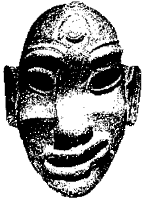The Drama and Shakespeare
This book provides an introduction to the dramatic traditions that Shakespeare inherited as he began his career as playwright. The theatre was both a commercial enterprise and a forum for literary experiment; the development of the stage and acting companies is discussed in the section on the stage.
Chapters in this book:
- Greek and Roman drama
- Moralities and Mysteries
- Early English history plays
- Early English tragedies
- Early English comedies
- Shakespeare's contemporaries
- Shakespeare's early reputation
Footnotes
-
Genre upon genre
Polonius tells Hamlet of the visiting players and their repertoire:
The best actors in the world, either for tragedy, comedy, history, pastoral, pastoral-comical, historical-pastoral, tragical-historical, tragical-comical- historical-pastoral; scene individible, or poem unlimited. Seneca cannot be too heavy, nor Plautus too light.
(Hamlet, 2. 2. 400-411)- scene individible
-
Refers to those plays in which the scene stays the same
throughout and the action lasts no more than a day;
generally true of classical drama.
- poem unlimited
- A play which allows no limit on the number of places represented, or on the time represented in the plot. Sir Philip Sidney commented disparagingly of early English drama for what he saw as a fault.
